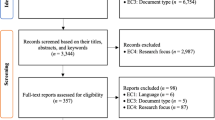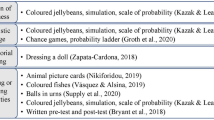Abstract
This article explores the potential for aspects of abstract algebra to be influential for the teaching of school algebra (and early algebra). Using national standards for analysis, four primary areas common in school mathematics—and their progression across elementary, middle, and secondary mathematics— where teaching may be transformed by teachers’ knowledge of abstract algebra are developed. In each of the four content areas (arithmetic properties, inverses, structure of sets, and solving equations), descriptions and examples of the transformational influence on teaching these topics are used to depict and support ways that study of more advanced mathematics can influence teachers’ practice. Implications for the mathematical preparation and professional development of teachers are considered.
Résumé
Cet article se penche sur l’influence potentielle de certains aspects de l’algèbre abstraite sur l’enseignement de l’algèbre scolaire (et l’algèbre élémentaire). En utilisant les normes nationales d’analyse, on développe quatre domaines primaires communs dans les mathématiques scolaires, ainsi que leur évolution au travers des classes de mathématiques élémentaires, intermédiaires et secondaires, lorsque l’enseignement peut être modifié par les connaissances de l’enseignant en algèbre abstraite. Dans chacun des quatre domaines (propriétés arithmétiques, inverses, structure des ensembles et résolution d’équations), des descriptions et des exemples de l’influence transformationnelle sur l’enseignement de ces sujets sont utilisés pour décrire et soutenir l’idée que l’étude de mathématiques plus avancées peut influencer la pratique de l’enseignant. Les conséquences pour la préparation mathématique et le perfectionnement professionnel des enseignants sont examinées.
Similar content being viewed by others
References
Asiala, M., Brown, A., DeVries, D., Dubinsky, E., Mathews, D., & Thomas, K. (1996). A framework for research and curriculum development in undergraduate mathematics education. Research in Collegiate Mathematics Education, 6, 1–32.
Ball, D. L. (2009, April 23). With an eye on the mathematical horizon: Knowing mathematics for teaching to learners’ mathematical futures. Paper presented at the National Council of Teachers of Mathematics (NCTM) Annual Meeting, Washington, DC. Retrieved from http://www-personal.umich.edu/∼dball/presentations/index.html
Ball, D. L., Thames, M. H., & Phelps, G. (2008). Content knowledge for teaching: What makes it special? Journal of Teacher Education, 59(5), 389–407.
Carraher, D. W., & Schliemann, A. D. (2007). Early algebra and algebra reasoning. In F. K. Lester (Ed.), Second handbook of research on mathematics teaching and learning (pp. 669–705). Charlotte, NC: Information Age.
Common Core State Standards in Mathematics (CCSS-M). (2010). Common Core State Standards in Mathematics. Retrieved from http://www.corestandards.org/the-standards/mathematics
Conference Board of the Mathematical Sciences. (2001). The mathematical education of teachers (MET I). Retrieved from http://cbmsweb.org/MET_Document/
Conference Board of the Mathematical Sciences. (2012). The mathematical education of teachers II (MET II). Retrieved from http://www.cbmsweb.org/MET2/MET2Draft.pdf
Cuoco, A., & Rotman, J. (2013). Learning modern algebra: From modern attempts to prove Fermat’s last theorem. Washington, DC: Mathematical Association of America.
Darling-Hammond, L. (2000). Teacher quality and student achievement: A review of state policy evidence. Educational Policy Analysis Archives, 8(1). Retrieved from http://epaa.asu.edu/ojs/article/view/392
Harry, B., Sturges, K., & Klingner, J. K. (2005). Mapping the process: An exemplar of process and challenge in grounded theory analysis. Educational Researcher, 4(2), 3–13.
Hill, H. C., Sleep, L., Lewis, J. M., & Ball, D. L. (2007). Assessing teachers’ mathematical knowledge: What knowledge matters and what evidence counts. In F. K. Lester (Ed.), Second handbook of research on mathematics teaching and learning (pp. 111–155). Charlotte, NC: Information Age.
Jakobsen, A., Thames, M. H., & Ribeiro, C. M. (2013, February 5-10). Delineating issues related to horizon content knowledge for mathematics teaching. Paper presented at the Eighth Congress of European Research in Mathematics Education (CERME-8), Manavgat-Side, Antalya-Turkey. Retrieved from http://cerme8.metu.edu.tr/wgpapers/WG17/WG17_Jakobsen_Thames_Ribeiro.pdf
Kaput, J. J. (2008). What is algebra? What is algebraic reasoning? In J. J. Kaput, D. W. Carraher, & M. L. Blanton (Eds.), Algebra in the early grades (pp. 5–17). New York, NY: Lawrence Erlbaum.
Klein, F. (1932). Elementary mathematics from an advanced standpoint: Arithmetic, algebra, analysis (E. R. Hedrick & C. A. Noble, Trans.). Mineola, NY: Macmillan.
McRory, R., Floden, R., Ferrini-Mundy, J., Reckase, M. D., & Senk, S. L. (2012). Knowledge of algebra for teaching: A framework of knowledge and practices. Journal for Research in Mathematics Education, 43(5), 584–615.
Monk, D. H. (1994). Subject area preparation of secondary mathematics and science teachers and student achievement. Economics of Education Review, 13(2), 125–145.
Morris, A. (1999). Developing concepts of mathematical structure: Pre-arithmetic reasoning versus extended arithmetic reasoning. Focus on Learning Problems in Mathematics, 21(1), 44–67.
Nathan, M. J., & Petrosino, A. (2003). Expert blind spot among preservice teachers. American Educational Research Journal, 40(4), 905–928.
Piaget, J. (1952). The origins of intelligence in children. New York, NY: International University Press.
Rowland, T., Huckstep, P., & Thwaites, A. (2005). Elementary teachers’ mathematics subject knowledge: The knowledge quartet and the case of Naomi. Journal of Mathematics Teacher Education, 8(3), 255–281.
Shulman, L. S. (1986). Those who understand: Knowledge growth in teaching. Educational Researcher, 15(2), 4–14.
Silverman, J., & Thompson, P. W. (2008). Toward a framework for the development of mathematical knowledge for teaching. Journal of Mathematics Teacher Education, 11(6), 499–511.
Simon, M. (2006). Key developmental understandings in mathematics: A direction for investigating and establishing learning goals. Mathematical Thinking and Learning, 8(4), 359–371.
Strauss, A., & Corbin, J. (1990). Basics of qualitative research: Grounded theory procedures and techniques. Newbury Park, CA: Sage
Wasserman, N. (2014). Introducing algebraic structures through solving equations: Vertical content knowledge for K-12 mathematics teachers. PRIMUS, 24(3), 191–214.
Wasserman, N., & Stockton, J. (2013). Horizon content knowledge in the work of teaching: A focus on planning. For the Learning of Mathematics, 33(3), 20–22.
Zazkis, R., & Leikin, R. (2010). Advanced mathematical knowledge in teaching practice: Perceptions of secondary mathematics teachers. Mathematical Thinking and Learning, 12(4), 263–281.
Zazkis, R., & Mamolo, A. (2011). Reconceptualizing knowledge at the mathematical horizon. For the Learning of Mathematics, 1(2), 8–13.
Author information
Authors and Affiliations
Corresponding author
Rights and permissions
About this article
Cite this article
Wasserman, N.H. Abstract Algebra for Algebra Teaching: Influencing School Mathematics Instruction. Can J Sci Math Techn 16, 28–47 (2016). https://doi.org/10.1080/14926156.2015.1093200
Published:
Issue Date:
DOI: https://doi.org/10.1080/14926156.2015.1093200




